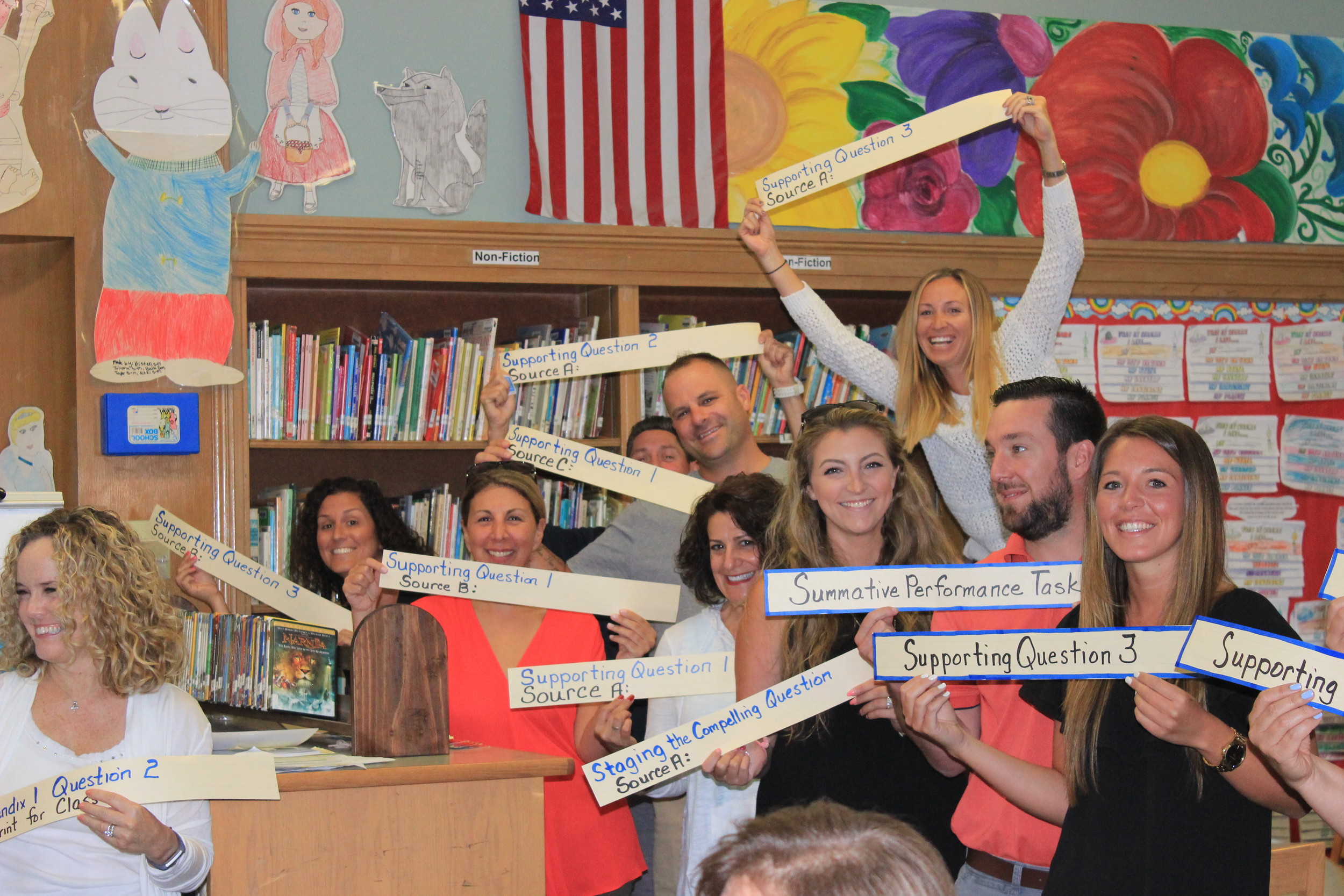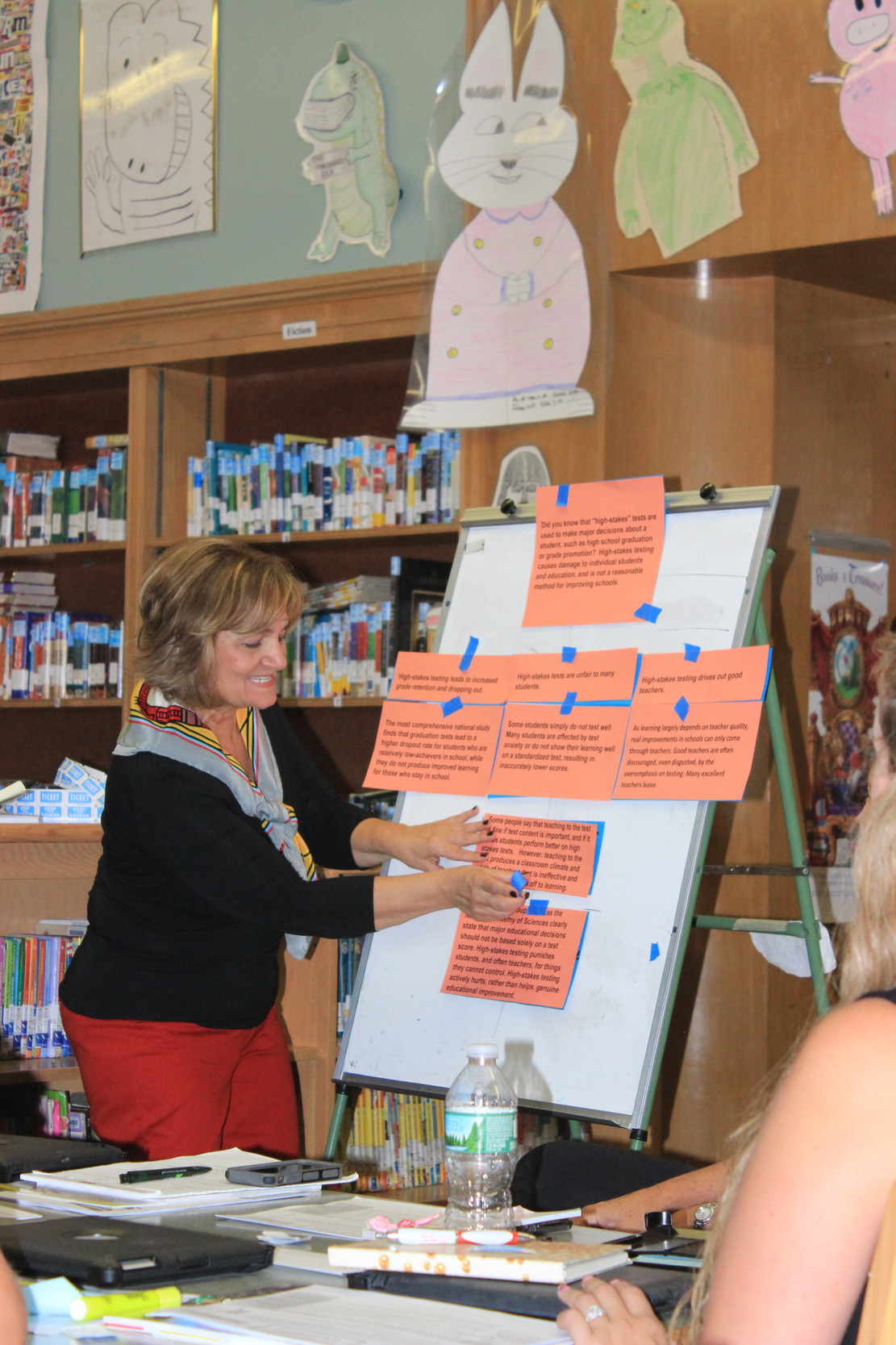Following a blueprint for student success
Franklin Square schools revise their social studies curriculum
While Franklin Square elementary school students enjoyed their summer vacation, their teachers were busy preparing for the 2017-18 school year, and focused in particular on revising their social studies curriculum. During the break, a team of educators held several planning meetings to review and rewrite the curriculum.
According to school officials, the district critically evaluates curricula each year - social studies, science, English Language Arts and math - and examines how district standards align with state standards. "We identified an opportunity to improve the alignment in social studies as well as the delivery of instruction," said Superintendent Patrick Manley. "We scheduled professional development prior to the opening of school to introduce this work to the entire staff."
On two separate days, professional development workshops were broken up into grade levels: kindergarten through grade two, grades three and four, and grades five and six. At each workshop, the focus was on planning social studies lessons to include age- and grade-appropriate material, using the Inquiry Design Model.
Cecelia "Ceil" Candreva, the assistant to the superintendent, led the workshops, showing teachers how they can pull everything they need for planning social studies lessons from the classroom technology they use, such as their iPads.
"The focus of the new social studies standards is inquiry," Candreva explained. "At the heart of the new curriculum is the notion that our students will learn about the social world by asking questions. 'Why do people live the way they do?' Social studies means that students and their teachers explore and examine the many ways people have lived their lives, both past and present."
The inquiry component is one of four - along with learning standards, themes and practices - that comprise a framework for creating a lesson plan designed to help children learn the most. It focuses on asking important questions related to social studies topics, and having children work together to answer them. They are expected to show evidence to back up their answers.
"These are debatable questions," Candreva said. "They are not yes or no response questions." Students may discuss a water project intended to help people in Africa, or debate the advantages and disadvantages of living in their home communities.
"Students will now be learning to develop an argument, as required by the standards," she said. "They will learn to make a claim, and support that claim with evidence from the sources they have been exploring. [They are] taking informed action, extending their learning beyond the classroom."
The new standards come from the New York State Education Department's Engage NY, an organized online listing of educational standards that is available to parents as well as educators.
"The standards at Franklin Square are still supposed to feel like home," Candreva said. "We can still use inquiry in our lessons while also keeping the Franklin Square flavor ... using YouTube videos, graphic organizers and cooperative learning in groups."
Manley said that the district considers children's needs first in planning for success. "We evaluate our success based on their accomplishments across a broad spectrum of data," he said of the students. "We are excited to update our social studies curriculum, and continue to provide a world-class education to our students. We're looking forward to another year of excellence in Franklin Square."









